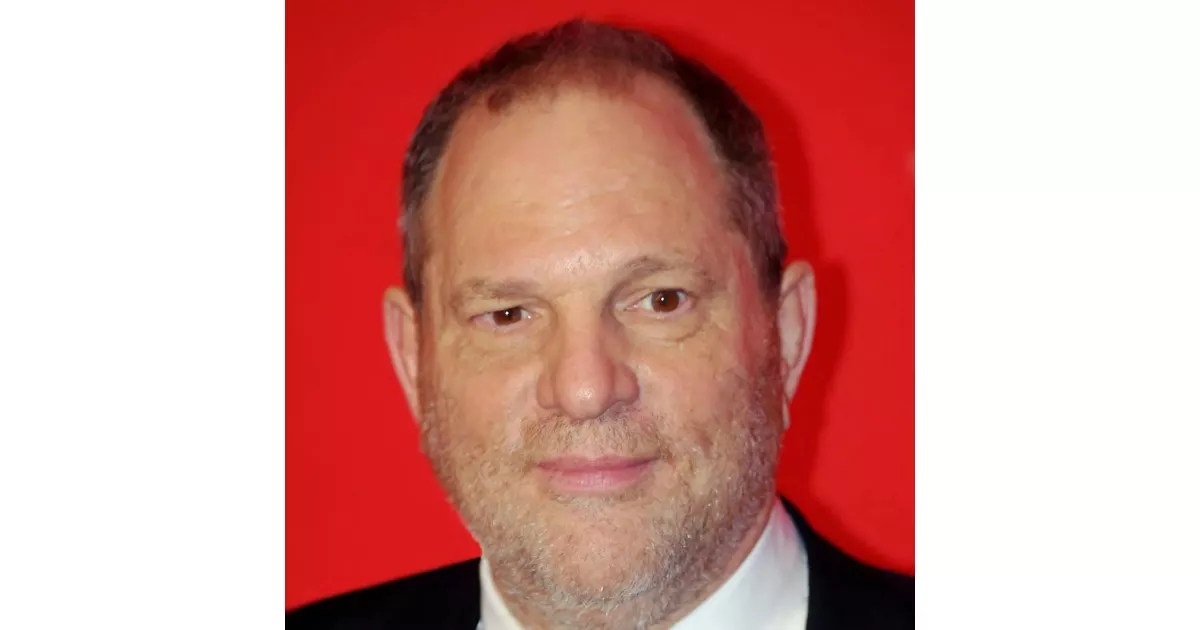From career breakthroughs to professional milestones, explore how Harvey Weinstein made an impact.
Harvey Weinstein is a former American film producer and convicted sex offender. He co-founded Miramax in 1979, producing successful independent films like 'Pulp Fiction' and 'Shakespeare in Love,' the latter earning him an Academy Award. He also won seven Tony Awards for productions like 'The Producers' and 'Billy Elliot the Musical.' After leaving Miramax, he and his brother Bob established The Weinstein Company (TWC), where he served as co-chairman from 2005 to 2017.
1979: Co-founded Miramax
In 1979, Harvey Weinstein and his brother Bob Weinstein co-founded Miramax, an entertainment company.
May 1982: Release of "The Secret Policeman's Other Ball"
In May 1982, Miramax Films released "The Secret Policeman's Other Ball", a movie created by editing two British benefit shows filmed for Amnesty International. This film became Miramax's first hit and raised considerable funds for Amnesty International.
1988: Wider attention with The Thin Blue Line
In 1988, Harvey Weinstein and Miramax Films gained wider attention with the release of Errol Morris' documentary The Thin Blue Line, which detailed the struggle of Randall Dale Adams.
1989: MPAA Rating Controversy
In 1989, Miramax Films released two films, Peter Greenaway's The Cook, the Thief, His Wife & Her Lover and Pedro Almodóvar's Tie Me Up! Tie Me Down!, which received an X-rating from the MPAA. Harvey Weinstein sued the MPAA over the rating system. Although he lost the lawsuit, the MPAA introduced the NC-17 rating two months later.
1989: Launch of Sex, Lies, and Videotape
In 1989, Miramax Films' successful launch release of Steven Soderbergh's Sex, Lies, and Videotape propelled the company to become the most successful independent studio in America.
1989: Miramax produced Sex, Lies, and Videotape
In 1989, Miramax, co-founded by Harvey Weinstein, produced the successful independent film Sex, Lies, and Videotape.
1992: Miramax produced The Crying Game
In 1992, Miramax, co-founded by Harvey Weinstein, produced the successful independent film The Crying Game.
1993: Re-edited Farewell My Concubine
Harvey Weinstein re-edited the 1993 Cannes Palme d'Or winner, Farewell My Concubine, for its U.S. theatrical release, which angered the 1993 Cannes jury head Louis Malle.
1993: Disney Acquired Miramax Films
In 1993, after the success of The Crying Game, Disney offered the Weinsteins $80 million for ownership of Miramax Films, which the brothers accepted, solidifying their Hollywood influence.
1994: Miramax produced Pulp Fiction and Heavenly Creatures
In 1994, Miramax, co-founded by Harvey Weinstein, produced the successful independent films Pulp Fiction and Heavenly Creatures.
1995: Pulp Fiction nominated for Academy Award
In 1995, Pulp Fiction was nominated for an Academy Award but lost to Forrest Gump.
1996: Miramax produced Flirting with Disaster
In 1996, Miramax, co-founded by Harvey Weinstein, produced the successful independent film Flirting with Disaster.
1997: Alterations to Foreign Films
Harvey and Bob Weinstein have been criticized for altering the vision of foreign filmmakers hired to create movies for Miramax, such as on the 1997 projects Mimic (directed by Guillermo del Toro) and Nightwatch (directed by Dane Ole Bornedal).
1997: Miramax won Academy Award for The English Patient
In 1997, Miramax Films won its first Academy Award for Best Picture with The English Patient.
1998: Miramax produced Shakespeare in Love
In 1998, Miramax, co-founded by Harvey Weinstein, produced the successful independent film Shakespeare in Love.
1998: Success of Shakespeare in Love
In 1998, Shakespeare in Love received several awards, including numerous Academy Awards.
2002: Delayed Release of The Quiet American
In 2002, Harvey Weinstein delayed the release of Phillip Noyce's The Quiet American following the September 11 attacks due to audience reaction. The film was eventually released after pressure from Michael Caine.
April 19, 2004: Appointed Honorary Commander of the Order of the British Empire
On April 19, 2004, Weinstein was appointed an honorary Commander of the Order of the British Empire (CBE) for his contributions to the British film industry, although this was an honorary award since he wasn't a Commonwealth citizen.
2004: Fahrenheit 9/11 Release
In 2004, the documentary "Fahrenheit 9/11" which Michael Moore claimed Harvey Weinstein owed him money for was released.
September 30, 2005: Left Miramax Films to form The Weinstein Company
On September 30, 2005, Harvey Weinstein and his brother left Miramax Films to form their own production company, The Weinstein Company (TWC).
2005: Co-founded the Weinstein Company
In 2005, Harvey Weinstein and his brother Bob founded The Weinstein Company (TWC).
2008: Supported Hillary Clinton's presidential campaign
In 2008, Weinstein supported Hillary Clinton's presidential campaign.
October 8, 2017: Fired from TWC
On October 8, 2017, Harvey Weinstein was fired from The Weinstein Company (TWC) after sexual abuse charges were released to the press.
October 2017: Dismissed from company amidst sexual abuse allegations
In October 2017, Harvey Weinstein was dismissed from his company and expelled from the Academy of Motion Picture Arts and Sciences following sexual abuse allegations dating back to the late 1970s. More than 80 women made allegations of sexual harassment or rape against him by October 31, sparking the #MeToo campaign.
October 2017: Sexual Harassment Allegations
In October 2017, The New York Times and The New Yorker reported that more than a dozen women accused Harvey Weinstein of sexual harassment, assaulting, or raping them. These allegations led to his dismissal from his company, suspension from BAFTA, and expulsion from the Academy.
October 2017: Served on the Board of the Robin Hood Foundation until October 2017
Until October 2017, Weinstein served on the board of the Robin Hood Foundation, a New York City-based non-profit that targets poverty.
2017: Co-chairman of TWC
From 2005 to 2017, Harvey Weinstein was the co-chairman of The Weinstein Company, alongside his brother Bob.
July 16, 2018: Shut down of TWC
On July 16, 2018, after attempts to sell the company or its library, The Weinstein Company (TWC) was shut down following a bankruptcy filing, with Lantern Entertainment purchasing all assets.
Mentioned in this timeline

Barack Obama the th U S President - was the...

Hillary Diane Rodham Clinton is an American politician lawyer and...
California is a U S state on the Pacific Coast...
Connecticut is a state in the New England region of...

Los Angeles is the most populous city in California and...

Emmanuel Macron is the current President of France and Co-Prince...
Trending

Ray Lewis is a former American professional football linebacker renowned for his -year career with the Baltimore Ravens A standout...

9 months ago Caitlin Clark, Serena Williams at NFL Meeting; Flag Football for LA28.

2 months ago Laura Rutledge and Tim Tebow Pay Off a Lost Bet on SEC Nation.
5 months ago Liberty University Announces Track & Field Tryouts and Softball Academic Honors

7 months ago Myles Garrett Victorious: Outpaces Girlfriend Chloe Kim in Thrilling Race

3 months ago Seth Moulton Challenges Ed Markey for Massachusetts Senate Seat in Generational Fight
Popular

Stranger Things created by the Duffer Brothers is a popular...

XXXTentacion born Jahseh Dwayne Ricardo Onfroy was a controversial yet...

Kelsey Grammer is an accomplished American actor producer and singer...

Marco Rubio is an American politician attorney and diplomat He...

Candace Owens is an American conservative political commentator and author...

Bernie Sanders is a prominent American politician currently serving as...
